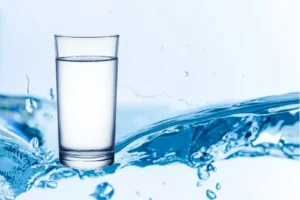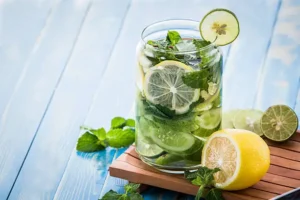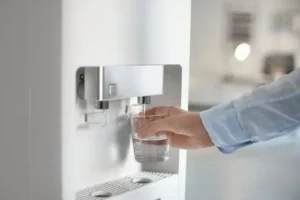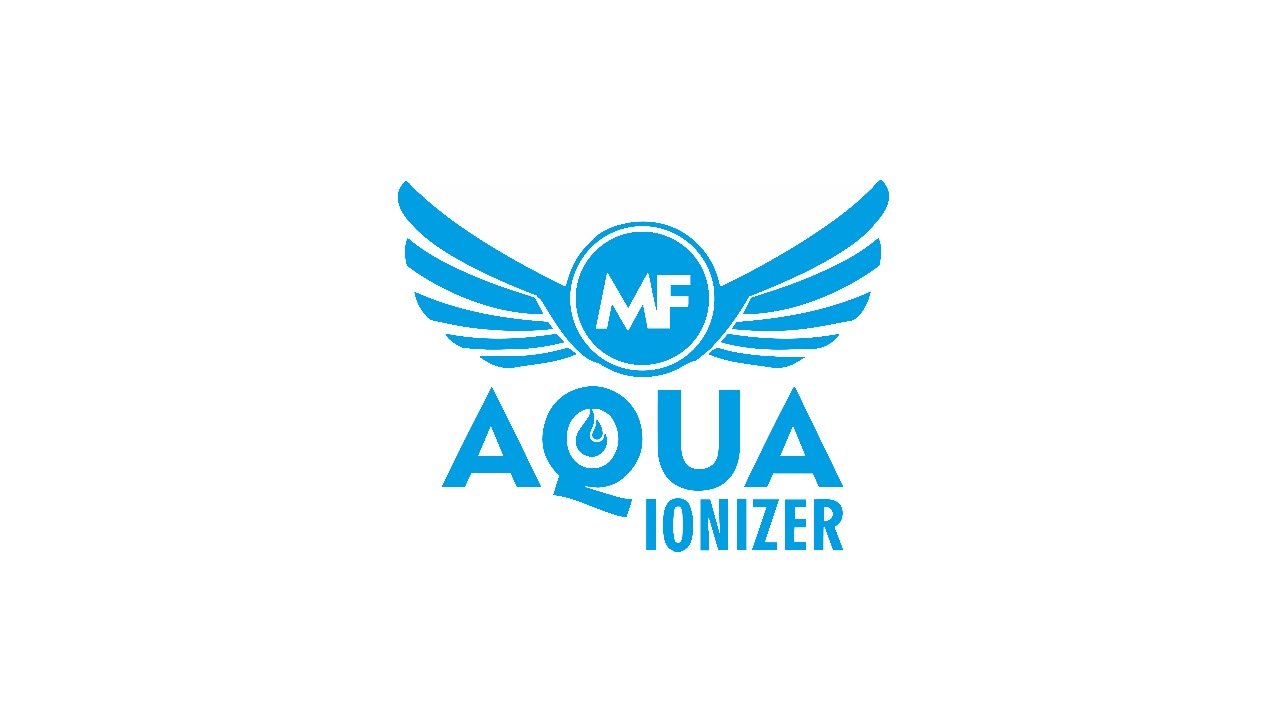Water is essential to life, and clean water is key to maintaining your health. While tap water in many areas is treated to meet safety standards, it may still contain impurities that could affect your well-being. If you’re wondering whether it’s time to invest in a water purifier, here are five key signs

How to Know When Your Water Quality is at Risk
This blog highlights key signs that your tap water might be contaminated, including strange tastes or odors, cloudiness, frequent stomach issues, hard water problems, and living in areas with known contaminants. Learn how to spot these warning signs and take steps to protect your health by investing in a water purifier for cleaner, safer water.
1. Your Water Has a Strange Taste or Odor
The Issue: If you notice your tap water has a strange taste or unpleasant odor, this is one of the most common signs that your water may be contaminated with substances like chlorine, sulfur, or metals. Tap water can have a chlorine-like taste or smell, especially if it’s been heavily treated with disinfectants. A sulfur or “rotten egg” odor is typically due to the presence of hydrogen sulfide gas, often from well water or in areas with aging water pipes.
Why It Happens:
- Chlorine: Municipal water systems often add chlorine or chloramine to disinfect water, which can leave a distinct taste or smell.
- Sulfur: Bacteria in groundwater can produce sulfur compounds, leading to foul odors.
- Heavy Metals: Iron, copper, or manganese can leach into your water from old pipes or plumbing systems, altering its taste and smell.
The Solution: A water purifier, particularly one with activated carbon or reverse osmosis (RO) filtration, can effectively remove these impurities. Carbon filters absorb chlorine, sulfur, and organic compounds that cause bad odors and tastes, while RO filters can remove a broad range of contaminants, including metals.
2. You Notice Cloudy or Discolored Water
The Issue: Cloudy or discolored water is a clear indication that something’s wrong with the water supply. While cloudy water isn’t always a health hazard, it could indicate the presence of bacteria, sediments, or rust. Discolored water—such as yellow or brownish tones—often points to iron or rust particles, particularly if your home uses old plumbing
Why It Happens:
- Sediment: Particles from soil or older plumbing systems can make your water appear murky.
- Iron & Rust: If your pipes are made of steel or iron, corrosion can introduce rust particles into the water.
- Water Supply Issues: Disturbances in the water supply system, such as maintenance or pipe bursts, can cause sediment to get into your tap water.
The Solution: A good water purifier can remove sediment, rust, and other particles that cause cloudiness. A sediment filter is ideal for filtering out larger particles, while a more advanced filtration system like reverse osmosis can also tackle smaller contaminants.
3. You Have Frequent Stomach Issues
The Issue: Stomach issues like diarrhea, cramps, nausea, or vomiting can sometimes be traced back to contaminants in your drinking water. Pathogens such as bacteria (E. coli, Salmonella), viruses (norovirus, hepatitis A), and protozoa (Giardia, Cryptosporidium) can contaminate water supplies, especially in areas with aging infrastructure or those relying on private wells that aren’t regularly tested.
Why It Happens:
- Pathogens: These microorganisms can enter the water supply through sewage leaks, animal waste runoff, or during natural disasters that compromise water treatment systems.
- Heavy Metals: Lead, mercury, and arsenic are common water contaminants that can cause gastrointestinal distress over time.
The Solution: If you’re experiencing recurring stomach issues, a water purifier with a UV filter or reverse osmosis (RO) can effectively kill or remove harmful pathogens. An RO system is especially effective at removing harmful chemicals and metals, while UV filters target viruses and bacteria that could be causing illness.
4. You Have Hard Water Problems
The Issue: Hard water contains high concentrations of calcium and magnesium, which can have various negative effects on your daily life. Although hard water isn’t typically harmful to your health, it can cause mineral buildup in pipes, appliances, and water heaters, leading to reduced efficiency and potential damage. Additionally, hard water can leave behind unsightly soap scum on dishes and cause dry skin or dull hair after showers.
Why It Happens:
- Calcium and Magnesium: These minerals dissolve into water as it passes through limestone or chalk deposits underground. A water’s hardness is directly proportional to the concentration of these minerals
The Solution: A water softener is a key solution for dealing with hard water. A water softener reduces hardness by replacing calcium and magnesium ions with sodium or potassium ions. Some advanced water purifiers combine both filtration and softening capabilities, ensuring better-tasting water while minimizing the effects of hard water.
5. You Live in an Area with Known Contaminants
The Issue: Certain areas are at a higher risk of water contamination due to industrial pollution, agricultural runoff, or naturally occurring substances like arsenic or fluoride. If you live in a region with known water quality issues, or if your area has experienced contamination events such as lead poisoning, it’s crucial to take additional precautions to ensure your water is safe to drink.
Why It Happens:
- Industrial Pollution: Factories and manufacturing plants may release pollutants into water sources.
- Agricultural Runoff: Fertilizers and pesticides can enter the water supply through runoff, especially in rural or farming regions.
- Natural Contaminants: Some areas, particularly those with old pipes or near natural reserves, may have high levels of naturally occurring metals like arsenic, radon, or fluoride.
The Solution: Investing in a high-quality water purifier is an important safeguard, especially if you live in an area with known water quality issues. An activated carbon filter can remove pesticides and chlorine, while reverse osmosis and distillation systems can tackle a wider array of chemicals, heavy metals, and even radioactive substances.
You Want to Improve Your Health & Hydration

Water is essential to our survival, making up about 60% of the human body. It supports everything from digestion and circulation to temperature regulation and joint lubrication. But not all water is created equal. If you’re serious about improving your health and hydration, Choosing purified water over unfiltered tap water, especially with the use of a water purifier, can make a significant difference in your health and well-being.
- Purified Water Supports Optimal Hydration
- Detoxifies Your Body
- Promotes Better Digestion
- Improves Skin Health
- Supports Long-Term Health
You Want Better Taste and Clarity for Drinking and Cooking

When it comes to your water, taste and clarity aren’t just about enjoyment—they can directly affect the quality of your food, your health, and your overall hydration. If you’ve ever noticed that your water tastes off, has a strange odor, or even appears cloudy, it might be time to consider improving its quality. Here’s why and how better water can elevate both your drinking experience and your cooking.
1. The Impact of Taste on Hydration
If your water doesn’t taste good, you’re less likely to drink enough of it. We all know that staying hydrated is essential for health, but a poor-tasting glass of water can make you reluctant to drink it throughout the day. By investing in a water purifier, you can eliminate unpleasant tastes and odors, making your water more enjoyable and encouraging you to drink more.
2. Better Taste for Cooking
The quality of the water you use in cooking affects the flavor and texture of your food. When making soups, stews, pastas, or rice, water is one of the key ingredients in the recipe. Water with contaminants can alter the taste of these dishes, sometimes creating an undesirable aftertaste. A water purifier can improve the taste of the water you use for cooking, ensuring that your dishes are free of any unwanted flavors. It ensures that your food tastes as fresh as possible and retains its intended flavors.
3.Improving the Flavor of Beverages
Water is the base for many of our favorite beverages, from coffee and tea to smoothies and cocktails. If your water contains impurities, it can alter the taste of your beverages, often in ways that are hard to identify. Using filtered water for your beverages can make a noticeable difference. Water purifiers can remove impurities that interfere with the taste of your drinks, helping you brew coffee with a richer flavor, steep tea with a smoother profile, and mix drinks that taste clean and refreshing.
Why Investing in a Water Purifier Matters

Your health and well-being are directly impacted by the quality of your water. Prolonged exposure to contaminated water, even in small amounts, can have long-term effects on your body, from gastrointestinal issues to more severe conditions like kidney stones, neurological damage, and even cancer. Moreover, poor water quality can damage appliances, plumbing, and the aesthetic quality of your home.
If you’ve identified any of the five signs mentioned above, it’s time to consider a water purifier. Whether you need to improve taste and odor, remove harmful pathogens, or deal with hard water, there’s a wide range of water purifiers available to suit your needs.
By investing in a water purifier, you’re taking an active step toward ensuring that your home’s water is clean, healthy, and safe to drink.
Your tap water should be a source of hydration and well-being, not a potential health risk. Recognizing the signs that your water may be contaminated—whether it’s bad taste, discoloration, stomach issues, hard water problems, or regional contamination—can help you make informed decisions about investing in a water purifier.
Your water may have any of these signs. Have you noticed anything? Consider upgrading your water purifier to protect your health and enjoy clean, refreshing water every day.
